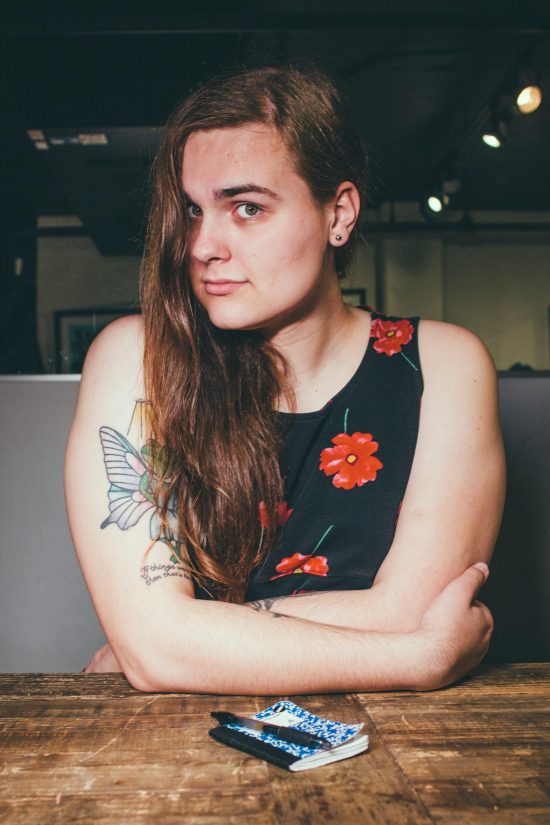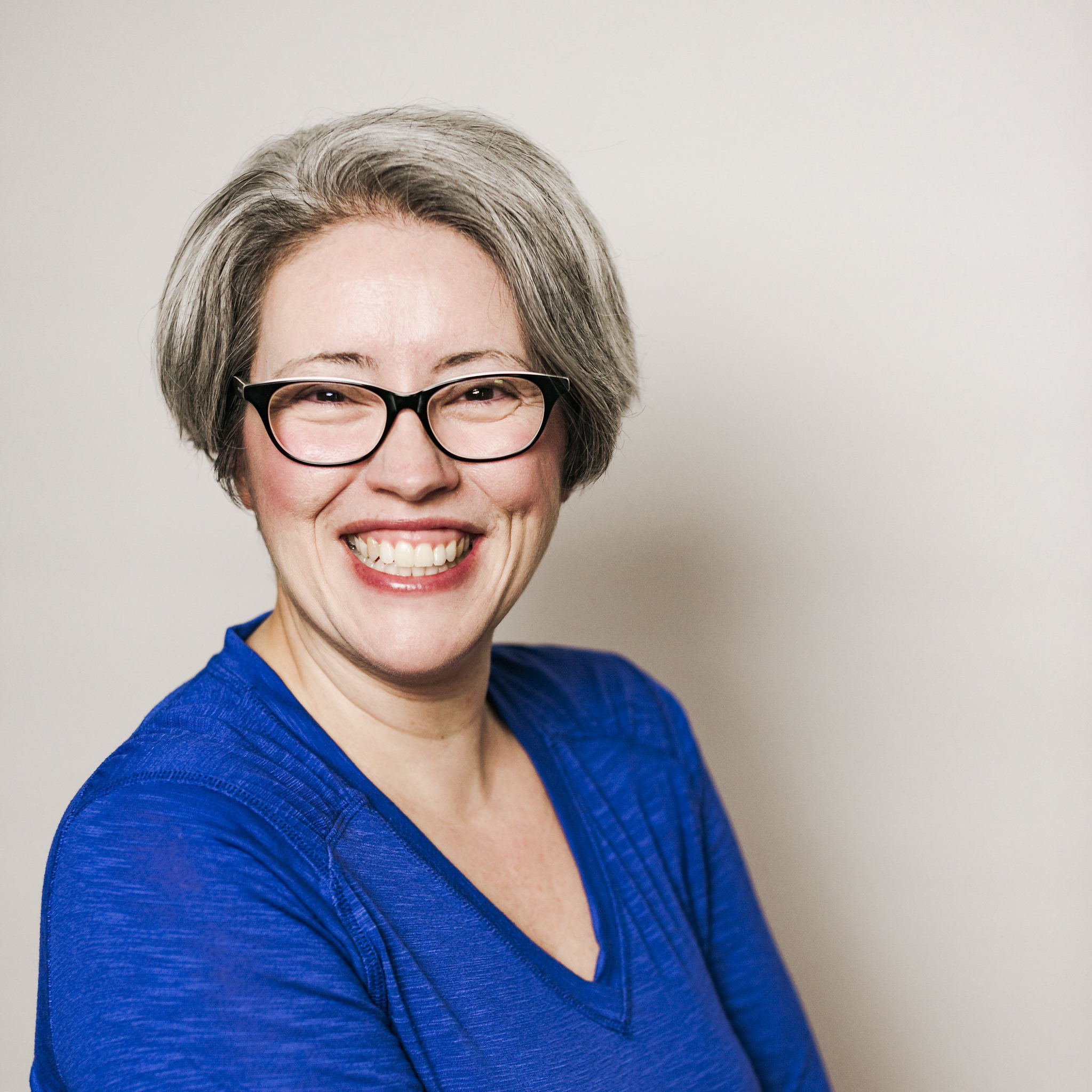
Mary Jane French Has Nothing To Prove
August 15, 2021
Noah Eberhart
 Valerie Lopez
Valerie Lopez
 Sara Cline
Sara Cline
Destination - Richmond, Virginia
The world is in the midst of a host of debuts, including the blinding sight of faces that haven’t seen true sunlight for many months, poking out of doors and taking the cautious first steps back into the great outside.
It’s only fitting that we debut something of our own for the podcast: the 2021 Summer Vacation Series. While we’re in no way on vacation, the theme speaks more to that most summer-y of concepts, traveling to new places near and far. Many of our guests are local to Austin, but during the pandemic we had the honor of “hosting” comics from around the world on our Isolation Comedy series, and the Vacation Series is our way of bringing them back for the full Comedy Wham interview treatment.
I’m going to start this article in a similar fashion to how Mary Jane French has had to start her stand-up sets for years: Mary Jane is a comic; she’s funny; and she’s trans.
Now, let’s start from the beginning, shall we? French was the youngest in her family. (Are you surprised? You shouldn’t be. It’s pretty common among comedians.) As such, she wasn’t allowed to watch the more mature comedy stuff that her older sibs were watching. So, her pursuit of stand up came from a place of having something to prove — or being a “tryhard,” as she puts it. Plus, she did some theater in high school and was a self-professed Simpsons stan, so the comedian elements are all adding up here. “Throughout high school, when I started getting into stand up, I would repeat any bit that I could,” she recalls, which helped her really get the mouthfeel for joke-telling. By her senior year of high school, she started hitting the stage. Well, just one stage, once a week, every week. She’d drive thirty minutes from her home in Northern Virginia, to a mic on the outskirts of the DC scene. Looking back, she admits that she was a bit “self-sheltered” even then, not yet comfortable with driving too far out, but that mic was her comfortable perch to eventually jump from.
Really, French has been doing stand up her entire adult life, though her comedy has changed dramatically over the years. “[S]tandup was … how I learned how to interact with the world around me in a lot of ways,” she concludes. “Early on … I was very angry and dysphoric at the time and very yell‑y,” she states before adding wryly, “I’m still yelly, but now I’m like happy yell‑y.” For context, it wasn’t until after her second year of comedy that French acknowledged her gender (after years of repression and dissociation) and began her transition. She’s thankful for that progression, though: With two years of comedy already under her belt to bolster her, she “suddenly went from doing like silly, absurdist bits, purely by virtue of the fact that I didn’t have life to draw from, really. And then suddenly, I had this really important thing to talk about,” she muses. She was ready and raring to talk about identity, and she was prepared to be funny doing it.
In hindsight, French is grateful not only for the support system and resources she had, but also for having standup as a coping outlet during the early transition process. “That’s a period of having to accept a lot of things that you’ve spent your whole life trying not to accept, and having to reverse some of the programming that you’ve internalized. And I think comedy definitely helped me process a lot of those feelings,” French reflects. In fact, she views her two self-released albums as “scrapbook diary pieces,” from very specific points in her transition. Indeed, the first album, Bearded Woman — which French fondly describes as “just like thirty minutes of me screaming” — was recorded two weeks before French began taking hormones. Her second album, Live at Gallery Five, was recorded two weeks before she underwent bottom surgery. Of course, she did not record these albums so early in her comedy career for any sort of prideful reason. Rather, the albums were a way of documenting material that was about to lose its relevance to her; even today, she’s grateful for those keepsakes of jokes that got her through tough times. “They are really like personal scrapbooks for me in a lot of ways,” she says.
French came out in 2014 — before Caitlyn Jenner had come out, but right around the time that people were becoming acquainted with Laverne Cox. In some respects, French considers this timing pretty fortunate: “[Being transgender] was like an interesting thing, and so I got a lot of attention for it,” she states. That being said, she greatly prefers the greater awareness that audiences have today. “For years, I had to be like, ‘I am transgender. Let me explain what that is to you because otherwise you’re gonna keep looking at me cockeyed and I can’t talk about anything else,” French recalls. In fact, when she first started transitioning, she plainly noticed how previously solid opening bits stopped working “because people would sort of just be like looking at me sideways … like, ‘Is this a character? What’s going on here?’” Now, she appreciates being able to mention that she’s trans without the grandiose explanation. (You can imagine how much mic time that eats up.)
After living in Richmond for five years (for college … but also for comedy), French made the cross-country move to Los Angeles. Having only ever lived in Virginia, she wanted to try her hand at living somewhere else; more subconsciously, she needed to prove to herself that she could. Truly, one of the curses of being a comedian is that there’s a constant expectation for you to make the big move to one of the two comedy meccas — New York or LA. What French soon discovered was that, once you get to LA, people make a lot of assumptions about your goals as a comic. They assume that you want to break into the club scene, or impress “X, Y, or Z entity.” But French knew she wasn’t interested in those things; she wasn’t even interesting in making her living from comedy. “It’s hard not to internalize that [sentiment of needing to make a living from comedy] … [but] I am way more interested in having my motivation for all of this be a weird compulsion and a labor of love, as opposed to the very normal compulsion of ‘I gotta eat,’” she says.
Instead, French found that she’s way more interested in the DIY, indie breed of shows than the club scene. Slowly, she realized that here she was paying for the exorbitant cost of living near LA (not even in LA proper), when she wasn’t even interested in the maximum grind that so many come to LA for (which we see here in Austin too, as comics hustle to hit four or five mics per night). Finally, when the lockdown slowed everything to a halt, the true epiphany hit: French needed balance; she wanted to have and keep friends that weren’t all comics; she wanted the time and energy for activities other than work and comedy; she wanted the money to do festivals — her favorite thing in comedy. Realizing that she had spent her two and a half years in LA daydreaming about building up the Richmond comedy scene, she made the decision to return. After seeing comics continually skip over Richmond for shows, even when it’s on their route from North Carolina to DC or Baltimore, she felt determined to weave the city into the national comedy scene. “It’s a really great city that is worth stopping over,” she affirms.
Apart from getting comics to see Richmond’s merit, French doesn’t feel as though she has something to prove anymore. Instead, her passion lies in producing her own shows. “I just make things happen on my own because I have a less-than-great relationship with trying to seek approval that never makes me feel good about myself,” she says. Having gone to LA and learned the lessons it had to offer, French knows exactly what she wants — to start performing regularly (when it’s safe to do so), to dust off the cobwebs on her material, and to record her first “album-album, as opposed to [an] I‑want-to-document-something album,” as she earnestly put it.
Back in the city she loves, French feels perfectly poised to go after her goals. That is proof enough for her, so it’s proof enough for us; stick it in the pudding.
Want to know more about comedy in Richmond, Virginia? Mary Jane’s recommendations for comics to check out from Richmond include: Francesca Lyn, Patrick Buhse, Tom Hall, Randolph Washington, Jr., Jacob McFadden, Amber Hendrix, Lucy Bonino, Brandon Beswick, Tyler Bower, and Monty Giles.
If you’re in Richmond, Mary Jane recommends checking out the small scene which she’s hoping to help build up. The Richmond scene, while small brings out lots of tough audiences, which she’s found makes comics stronger performers when they perform at festivals or touring in other big comedy scenes.
Follow Mary Jane
- Website — MaryJaneFrench.com
- Linktree — linktr.ee/MaryJaneFrench
- Twitter — @MaryJaneFrench
- Instagram — @maryjanefrench // @traversecomedy
- Facebook — Facebook.com/MaryJaneFrench
Mary Jane can be seen and heard:
- Top Down Comedy Showcase — August 30th at Bottoms Up Pizza
- Femmes the Rules podcast/live show
- Important Conversations Over Fruit Chews (Season 1) podcast/live show
- Specials — Bearded Woman and Live at Gallery 5 available now
 Valerie Lopez
Valerie Lopez
 Sara Cline
Sara Cline

